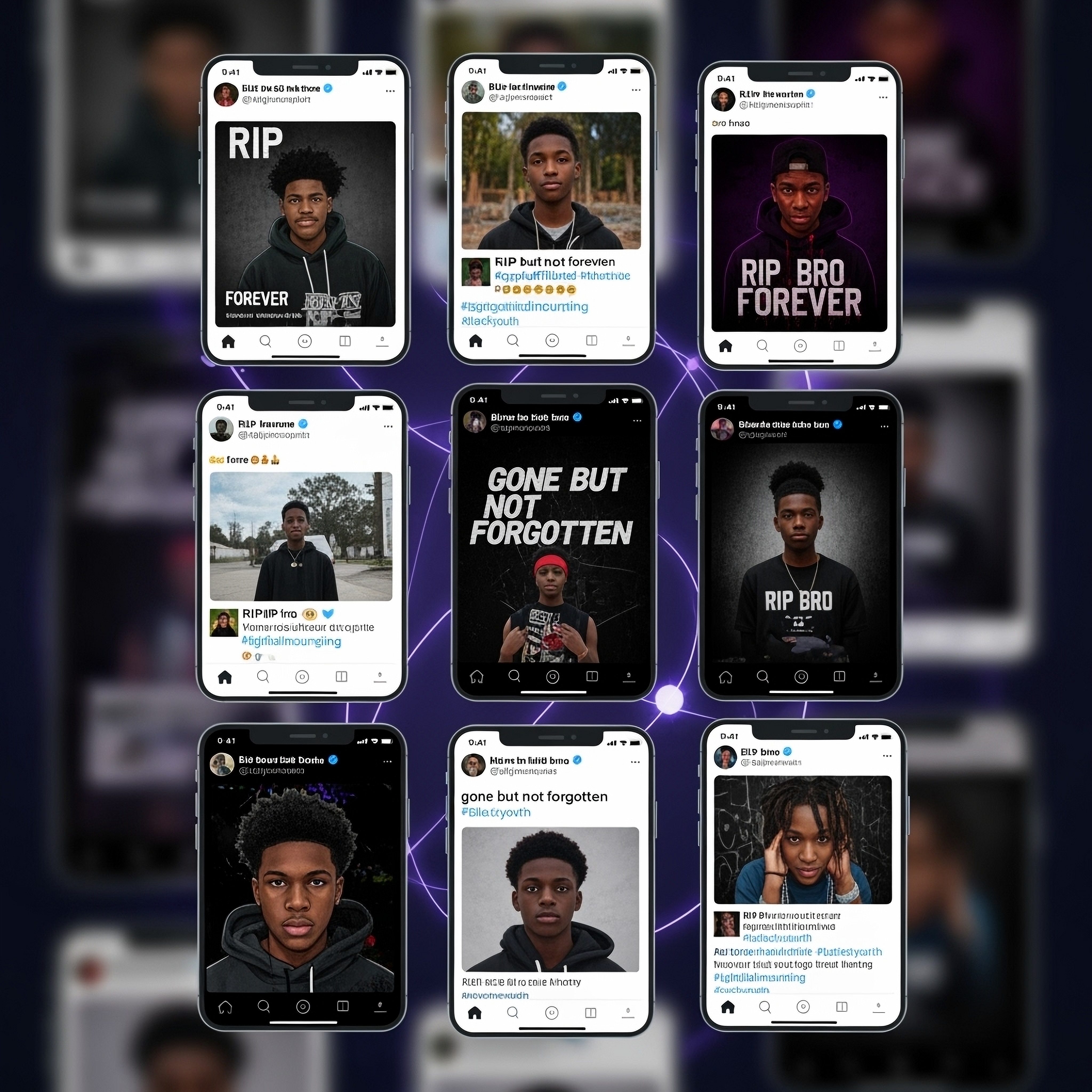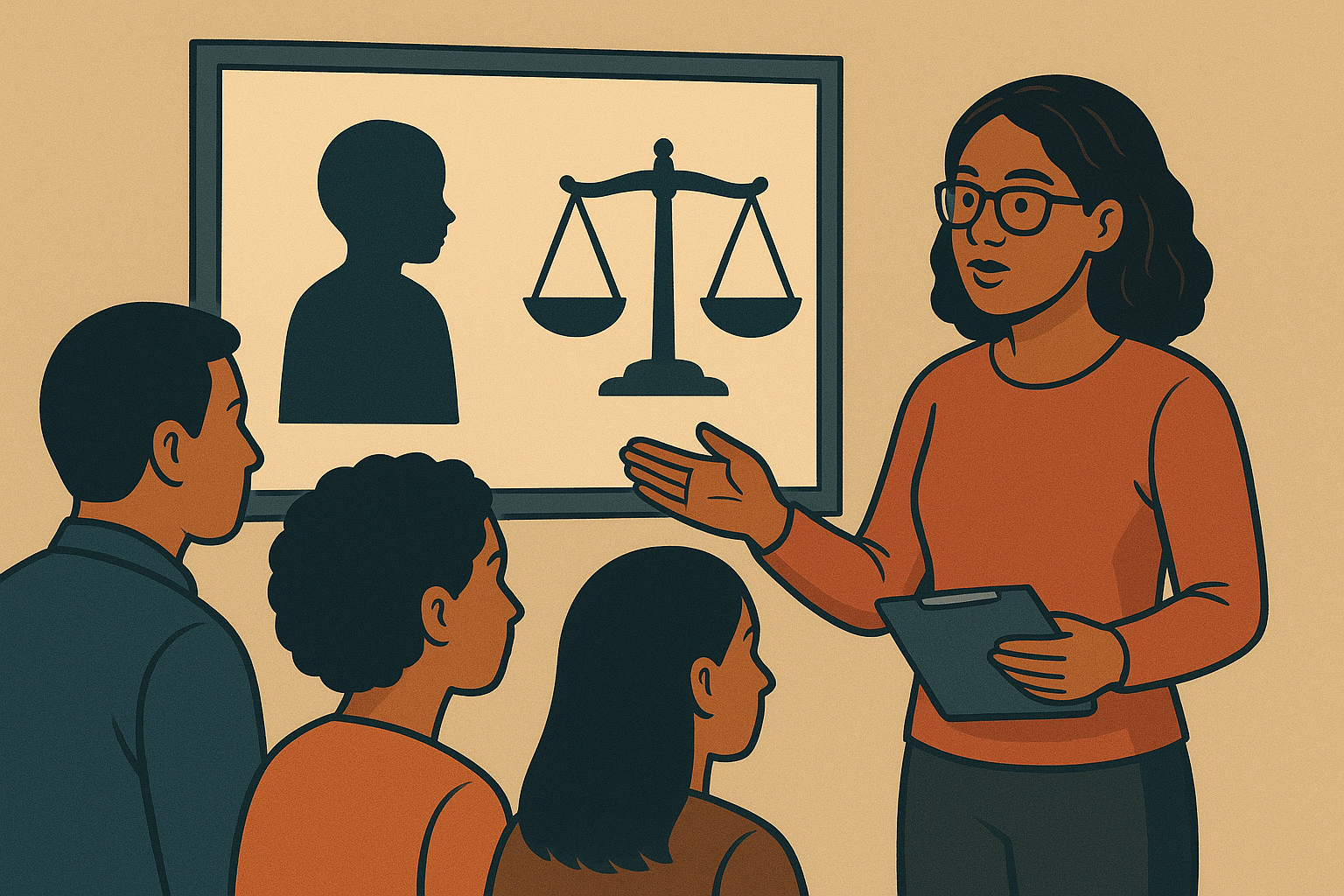Science Meets Storytelling
Through my writing, I explore how digital spaces shape mental health, trauma, grief, and resilience—particularly for youth and adults of color. I blend rigorous academic research with accessible, human-centered storytelling to elevate underrepresented voices and drive community-centered innovation.




Explore My Work

Academic Publications
Peer-reviewed studies that explore the digital lives of marginalized communities, advancing knowledge in social work, data science, and public health.

Articles and Essays
Essays that reflect on digital grief, emotional well-being, and the intersections of race, identity, and online life.

Media Features
Appearances and commentary in major media outlets unpacking how social platforms affect the emotional and social realities of people of color.

Spotlight on Impact


Digital Narratives of Grief and Resilience: Insights from the Integrating Emotional Stories Online (IESO) Platform
This interdisciplinary study examines how Black Harlem residents and New York City university students use social media to express grief and daily stress. Using the Integrating Emotional Stories Online (IESO) platform, researchers collected anonymous posts and analyzed them with qualitative and computational methods. Findings revealed four main themes: interpersonal grief, systemic grief, everyday stressors, and practices of self-care and joy.



Access My Writing

Digital Narratives of Grief and Resilience: Insights from the Integrating Emotional Stories Online (IESO) Platform
This interdisciplinary study examines how Black Harlem residents and New York City university students use social media to express grief and daily stress. Using the Integrating Emotional Stories Online (IESO) platform, researchers collected anonymous posts and analyzed them with qualitative and computational methods. Findings revealed four main themes: interpersonal grief, systemic grief, everyday stressors, and practices of self-care and joy.

Data Caricatures: On the Representation of African American Language in Pretraining Corpora
The study evaluates African American Language (AAL) in 12 open-source pretraining corpora and finds it is severely underrepresented, often less than 0.2% of documents. Many AAL texts reinforce harmful stereotypes, and automated filters disproportionately preserve White Mainstream English over AAL.

Unmasking camouflage: exploring the challenges of large language models in deciphering African American language & online performativity
The study examines how large language models (LLMs) misinterpret African American Language (AAL) due to biased training data. It highlights that online sources like social media and hip-hop lyrics overrepresent performative language compared to natural speech, leading LLMs such as GPT-3 and GPT-4 to struggle with understanding camouflaging and performativity, resulting in harmful misinterpretations.

PhonATe: Impact of Type-Written Phonological Features of African American Language on Generative Language Modeling Tasks
This study examines how gang-affiliated Black youth use social media, particularly photos, emojis, and multimodal tweets, to memorialize the deceased and express grief. Using Critical Technocultural Discourse Analysis and theories of segregation and loss, it highlights how digital platforms provide space for unique grieving practices, including speaking directly to those who have passed away.

Digital Mourning in Tweets: Multimodal Analysis of Image-Based Grieving Practices Among Gang-Affiliated Black Youth
This qualitative study explores how gang-affiliated Black youth in Chicago use multimodal tweets with images, photos, and emojis to digitally memorialize deceased peers and express grief on social media.

Community implications for gun violence prevention during co-occurring pandemics; a qualitative and computational analysis study
This study analyzes how New York City public housing residents perceive gun violence amid COVID‑19 and anti‑Black racism by combining focus group interviews with computational analysis of millions of social media posts to surface community‑driven insights for prevention efforts.

Social work in metaverse: addressing tech policy gaps for racial and mental health equity
This article published on February 16 2022 argues that integrating social work principles into U.S. federal technology policy is urgently needed to prevent racial and mental health harms in the emerging Metaverse and to promote equitable digital inclusion.

Developing machine learning-based models to help identify child abuse and neglect: key ethical challenges and recommended solutions
This article examines the ethical challenges of using machine learning models to identify child abuse and neglect and recommends solutions that prioritize fairness, transparency, and the protection of vulnerable families.

Considerations for development of child abuse and neglect phenotype with implications for reduction of racial bias: a qualitative study
This article explores the ethical challenges of applying machine learning to detect child abuse and neglect and offers recommendations that emphasize fairness, accountability, and the protection of vulnerable families.
Join the Movement
Take the next step—join the waitlist for my upcoming book or book me for your next event. Let’s build a future rooted in care and connection.
Stay Inspired, Stay Informed

Sign up to receive insights, research updates, and reflections on joyful living, digital healing, and social transformation.


